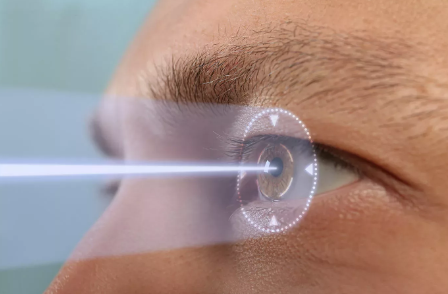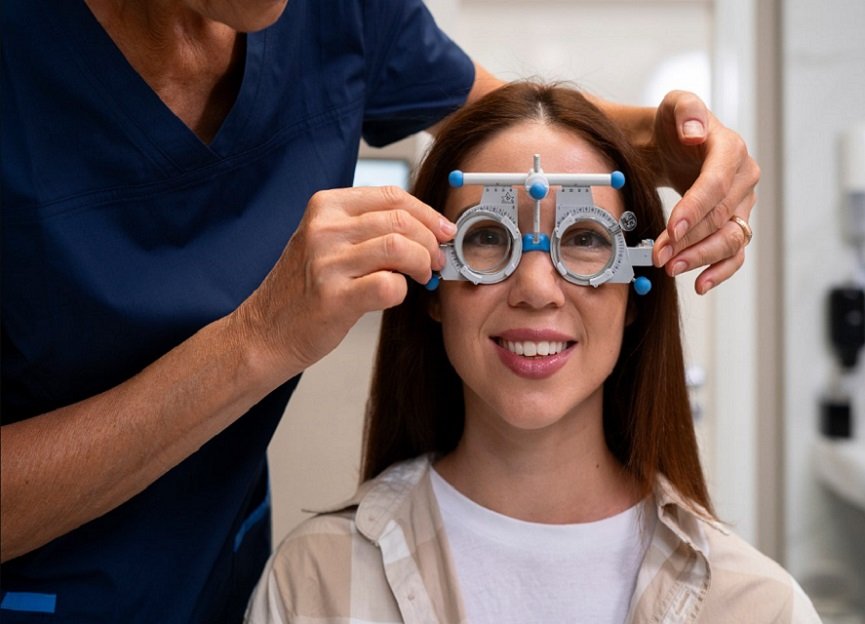
Are you tired of relying on glasses or contact lenses? Refractive eye surgery might just be the solution you've been looking for. This innovative procedure has transformed the lives of millions, allowing them to enjoy clearer vision and a hassle-free lifestyle. Whether you're dealing with nearsightedness, farsightedness, or astigmatism, advancements in refractive surgery can help correct your vision effectively.
In this blog post, we’ll explore the different types of refractive surgeries available today and delve into what makes LASIK the most popular choice among patients seeking freedom from corrective eyewear.
Join us as we unpack everything you need to know about refractive eye surgery and find out how AIY Eye Care can offer some of the best options in Ghaziabad at affordable rates!
Types of Refractive Surgeries
Refractive eye surgery encompasses several techniques designed to improve vision by reshaping the cornea. Each type offers unique benefits tailored to individual needs.
LASIK is one of the most popular methods, utilizing a laser to create a flap in the cornea and reshape it beneath. This approach allows for quick recovery with minimal discomfort.
PRK (Photorefractive Keratectomy) is another option. Unlike LASIK, PRK removes the outer layer of the cornea before reshaping it with a laser. It’s ideal for patients with thinner corneas.
LASEK combines elements of both LASIK and PRK. In this technique, alcohol helps loosen the epithelium so that it can be moved aside before treatment begins.
Implantable contact lenses provide an alternative for those who may not qualify for laser procedures. These lenses are surgically placed inside the eye to correct refractive errors effectively.
Most Common Refractive Surgery: LASIK
LASIK, or Laser-Assisted In Situ Keratomileusis, stands out as the most common refractive eye surgery today. This advanced procedure primarily addresses nearsightedness, farsightedness, and astigmatism.
The LASIK technique uses a laser to reshape the cornea. By doing so, it improves how light is focused onto the retina. Many patients report significant improvements in their vision almost immediately after the surgery.
One of its biggest advantages is speed. The entire process typically takes less than 30 minutes per eye. Most individuals return to normal activities within a day or two.
Patients appreciate that LASIK has minimal discomfort during the procedure, often describing it as quick and painless. With high success rates and ongoing advancements in technology, many consider this option when looking for affordable refractive eye surgery options like those offered at AIY Eye Care in Ghaziabad.
Procedure and Recovery Process of LASIK
The LASIK procedure is quick and efficient. It typically takes just about 15 minutes per eye. Patients begin by lying down in a comfortable chair, ensuring they are relaxed. An anesthetic drop numbs the eye, making the process painless.
Once prepared, a specialized device keeps the eyelids open while a thin flap of corneal tissue is created using either a laser or microkeratome. This flap is gently lifted to allow access to the underlying cornea for reshaping.
After correcting your vision with precise measurements from an excimer laser, the flap is repositioned without stitches. The healing starts almost immediately; most patients notice improved vision within hours.
Recovery involves minimal discomfort and often includes post-operative instructions like avoiding strenuous activities for a few days. Regular follow-up appointments ensure everything heals properly and that you achieve optimal results from this popular refractive eye surgery.
Risks and Benefits of LASIK
LASIK surgery offers numerous benefits that attract many patients. One of the primary advantages is its potential for immediate vision improvement, often allowing individuals to see clearly without glasses or contacts shortly after the procedure.
However, like any medical intervention, LASIK carries certain risks. Some patients may experience dry eyes or visual disturbances such as glare and halos around lights. These side effects can be temporary but might persist in some cases.
Another consideration is the possibility of undercorrection or overcorrection, which could require additional procedures later on. While rare, infections and complications during recovery can also occur.
A thorough consultation with an experienced eye care professional is essential to weigh these factors carefully before making a decision about LASIK as your choice for refractive eye surgery at AIY Eye Care in Ghaziabad.
Alternatives to LASIK
If LASIK isn't the right fit for you, there are several alternatives worth considering.
PRK (Photorefractive Keratectomy) is a popular choice. Unlike LASIK, it doesn’t involve creating a flap in the cornea. Instead, the outer layer of cells is removed before reshaping the cornea with a laser. Recovery can take longer than LASIK but may be suitable for those with thin corneas.
Another option is SMILE (Small Incision Lenticule Extraction). This minimally invasive procedure uses a laser to create and remove a small lens within the cornea. It offers quick recovery times and less chance of dry eyes afterward.
Then there's implantable contact lenses (ICL). This surgery involves placing a lens inside your eye without altering its natural structure, making it reversible if needed.
Each alternative has distinct benefits and risks that should be discussed with an eye care professional to find what suits you best.
Conclusion
Refractive eye surgery has transformed the way many people see the world. With various types available, individuals can choose a solution tailored to their specific needs and lifestyle. Among these options, LASIK stands out as the most popular choice due to its effectiveness and quick recovery time.
If you are considering refractive eye surgery, exploring all avenues is vital. The best refractive surgery in Ghaziabad could be just around the corner at AIY Eye Care—known for offering affordable refractive eye surgery without compromising on quality. It’s an exciting time in ophthalmology; new technologies continue to emerge that promise even better outcomes.
Your journey towards clearer vision starts with informed choices and professional advice tailored specifically for you. Whether it's LASIK or another approach, take your first step today by consulting with experienced specialists who can guide you through this life-changing decision.




